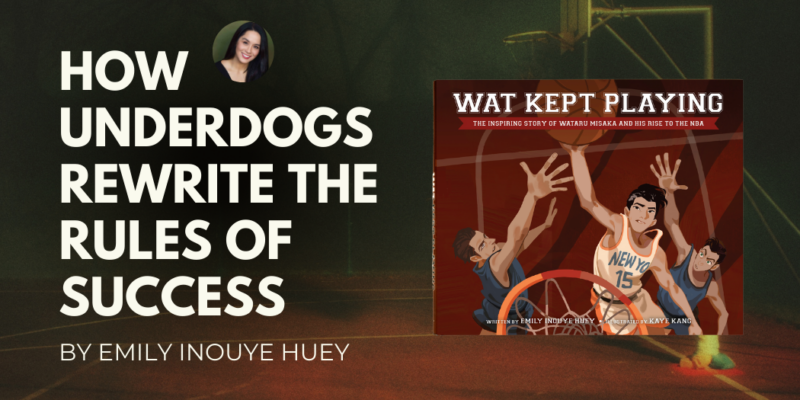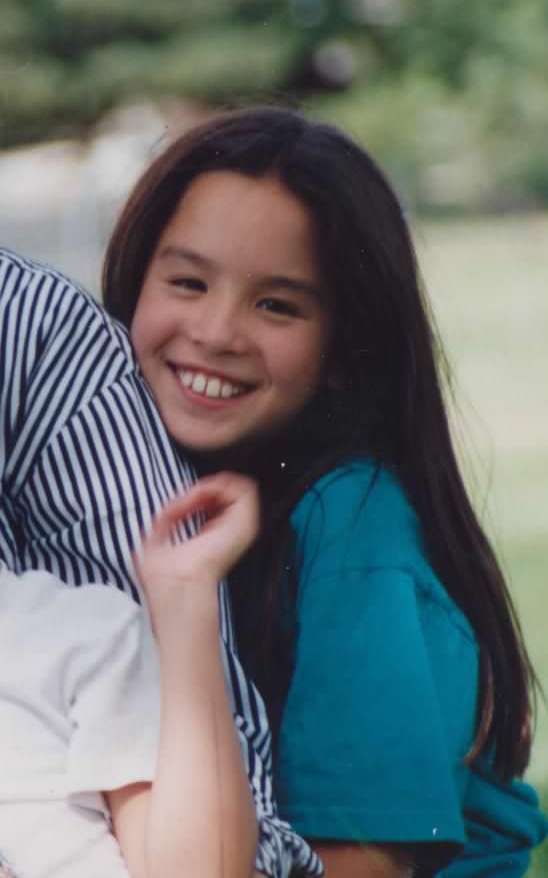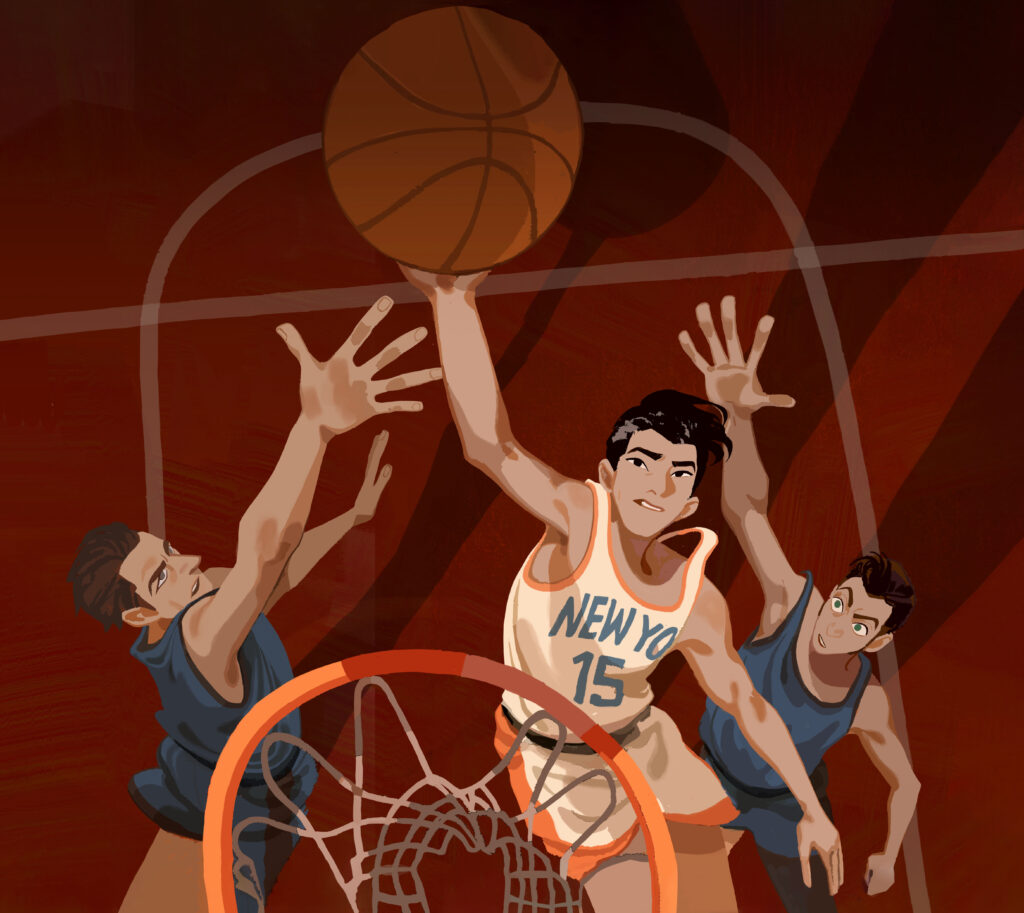
by Emily Inouye Huey
In the summer of 1947, a basketball player from Ogden, Utah, quietly became the first person of color to play in the NBA. It was the very same year that Jackie Robinson broke the color line in major league baseball, but Japanese American Wataru Misaka’s induction went relatively unnoticed. Years later, he would say, “It wasn’t a big thing.”
That kind of self-effacement was typical of “Wat” Misaka, a man I grew up seeing at family gatherings hosted by my aunt, who was married to Wat’s brother. By that time, Wat was bespectacled and slight, with hair white as snow. As a little girl, I liked to sit and listen to my dad and Wat tell stories, and they could both talk for hours. But in all those conversations, I never once heard him speak of his basketball accomplishments.

It was only as an adult that I learned that Wat had helped the University of Utah win two national championships. It was from a non-family member that I heard he played for the New York Knicks. Even his children, I understand, learned later in life. That was the kind of man Wat was.
His accomplishments are even more meaningful given the challenges he overcame. He measured barely 5’7″, something that radio announcers took note of when they called him a “little guy” and “cute” in their reports of the games. And during the years he played college ball, over 90% of Japanese Americans—those who shared his ethnicity and culture—were incarcerated. Due to wartime concerns and biases, the U.S. government forcibly removed people of Japanese descent from their homes and put in prison camps without due process.

Living in Utah, which was considered an allowed zone, Wat was allowed to continue going to school, but anti-Japanese sentiment was rampant. Wat’s away games, especially, were plagued with angry booing. In one instance his team had to physically extract him from an angry crowd.
Yet Wat played on.
What is it that gives a person the strength to keep going when everything seems against them? That is the lesson I am most drawn to in Wat’s story. Because every child needs stories of overcoming.
Just as Wat Kept Playing, we want our kids to learn how to challenge barriers and persevere in their dreams. It’s in these choices that they can develop grit and resilience, even character. And that’s something more important than any championship or award.

I think perhaps that’s something Wat knew better than most. Maybe that’s partly why he never spoke of his accomplishments. But even though he didn’t need to tell his story, we need to know it. Our children need stories that show that it’s possible to overcome hard things. More importantly, they need to know that they can too.

Emily Inouye Huey is an author of historical books for children and teens. Her first novel, Beneath the Wide Silk Sky, has received several awards, including the Society for Children’s Book Writers and Illustrators’ Golden Kite Award and the Whitney Award for Youth Novel of the Year. Emily holds an MFA in Creative Writing from Lesley University and lives in Salt Lake City, Utah. You can visit her at emilyhuey.com or on Instagram at @emily_inouye_huey.
New! WAT KEPT PLAYING: This picture book biography about Asian American basketball hero Wataru Misaka will inspire young readers to challenge barriers and dream big.